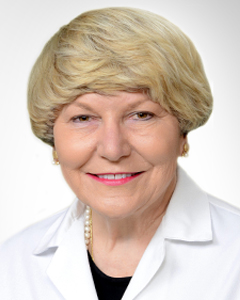Study Finds Cancer Rates Differ Within Certain Racial Groups
People of African descent make up 12 percent of the U.S. population, totaling more than 42 million people.
However, the country’s black population is very diverse, as it includes people who were born in the U.S., the Caribbean, in Africa and other countries from which someone of African descent has emigrated.
This is an important distinction, because in research we often look at wider demographic profiles — race, gender or age — to assess how various conditions affect certain groups. Now, a recent study indicates diving deeper into health disparities within certain groups may lead to more targeted prevention.
The study, published in the journal Cancer, examined the differences in cancer rates between blacks born in the U.S. and those born in Africa. Researchers looked at 12 years worth of government data to compare the frequency of the top 15 cancers among U.S.-born blacks and African-born blacks.
The study found that African-born blacks had higher rates of infection-related cancers like leukemia, non-Hodgkin lymphoma, liver and stomach cancer and Kaposi sarcoma, a cancer that develops in the lymph vessels and blood vessels and is linked to the HIV virus. They also were more likely to develop prostate cancer, while women in this group were more likely to develop thyroid cancer. However, African-born blacks had a lower rate of smoking-related cancers and colon cancers. Researchers also discovered incidence rates for certain cancers differed depending on where the person was born: black men born in East Africa had a higher rate of liver cancer, black women born in the same region had a higher rate of thyroid cancer and blacks born in West Africa had a higher rate of prostate cancer.
The study’s researchers said it’s important to drill down into differences among this group because other studies don’t often do it. It’s also critical because understanding these differences can help the medical community develop more effective and targeted prevention programs.
"Typically, cancer occurrence among blacks in the United States is presented as one homogenous group, with no breakdown by country or region of birth," said Dr. Ahmedin Jemal, an epidemiologist with the American Cancer Society who co-authored the study.
According to the American Cancer Society, more than 189,000 blacks in the U.S. were diagnosed with cancer last year. However, the data isn’t broken down by sub-group, so we have no way of knowing what factors contributed to the incidence rate within certain subsections of this group.
The study didn’t come to a conclusion about this either, so we don’t yet understand why these differences exist. However, economic, social and genetic factors may play a role. Cultural factors also may play a role in two ways, researchers said: African-born people who come to the U.S. may have access to better care and more prevention resources, but at the same time they may adopt bad lifestyle habits that are common in American culture, like smoking, lack of regular exercise and consuming more sodium, saturated fat and sugar — all of which increases the risk of cancer and other chronic conditions.
Getting more clarity on these differences is important because people of African descent in the U.S. tend to have the highest death rate and shortest survival rate for most cancers among any racial group. The population of African-born people in the U.S. also is increasing (about 2.1 million people as of 2015), so if we can pinpoint the key factors that lead to a higher incidence of cancer in this group we can potentially save millions of lives.
Are you interested in learning more about genetic counseling?
There are many issues to consider before undergoing genetic testing. Therefore, individuals that have a personal or family history suggestive of a hereditary form of cancer may benefit from genetic counseling. Genetic counseling provides information to individuals in order for them to better understand their risk to develop cancer.



